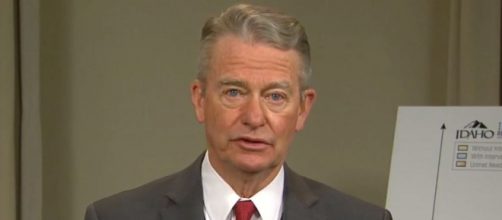In recent years, sitting governors and lieutenant governors of American states tend to be political allies. In many cases, the lieutenant governor has been selected by the governor. Even if they haven't been, they, at least publicly, usually get along on most issues. Especially given that in recent years they're generally members of the same political party.
Idaho is led by Governor Brad Little and Lieutenant Governor Janice McGeachin, both Republicans. But despite this, they have very openly not gotten along. They seem poised for a primary face-off in 2022.
McGeachin is associated with the far-right of the party, as noted by East Idaho News. In contrast, Little is at least somewhat more moderate. And the drama has already begun.
McGeachin repeatedly goes for a power grab
Brad Little recently made a trip to Texas, along with governors of several other states. Idaho's constitution establishes some protocols for when the governor is out of state. Including that, at least in some cases, the lieutenant governor temporarily assumes the governor's role.
Over the years, there have been little to no major problems with this. But lately, not so much. McGeachin set out to undo a number of state policies meant to stop the spread of COVID-19. The move seemed to be a blatant political stunt given that Little could quickly put them back into place.
Which he did, calling McGeachin's behavior "irresponsible," "an abuse of power," and "self-serving." He also equated it with tyranny.
It's not the first time that Janice McGeachin has done such a thing. Earlier in 2021, they made a similar move regarding mask mandates. At the time, Brad Little was in Tennessee for a Republican Governors Association conference.
He quickly repealed that executive order as well.
In recent weeks, Idaho has become an epicenter of the COVID-19 pandemic. Many hospitals become overly-swamped with patients due to it. Furthermore, there've been several reports of medical professionals being harassed and threatened and caused by individuals being consumed by outlandish and unfounded conspiracy theories.
Also reportedly looked into deploying the military
American state governors also hold control of their respective state's National Guard units largely. State National Guard units are made up of members of the United States Army and Air Force. They can also be utilized as state militias, usually in times of emergency, such as a natural disaster.
McGeachin apparently sought to deploy the Idaho National Guard to the U.S.-Mexico border, where there've been several problems with immigration. Maybe ironically, it's also the reason that Little went to Texas, to begin with.
McGeachin wrote a letter to Idaho's adjutant general, Army Major General Michael J. Garshak. In it, she requested the steps on how she could activate the National Guard.
Garshak replied to her that she didn't have the authority to do so. It could also be noted that in her initial, she referred to herself as being the governor. Rather than as the lieutenant governor or acting governor, as she did in her recent executive order.
Brad Little accused her of political grandstanding. However, it's worth noting that he has deployed the Idaho National Guard to that same border in the past.
Butch Otter released a scathing statement about McGeachin's failed deployment attempt.
Otter is a former Republican governor and lieutenant governor of Idaho, also a retired member of the Idaho Army National Guard. Otter said it revealed her ignorance, reports KMVT. Adding that, she was only seeking to advance her own political agenda. And that it belittles and demeans the sacrifices of military members and their families and "is shameful and unacceptable."


